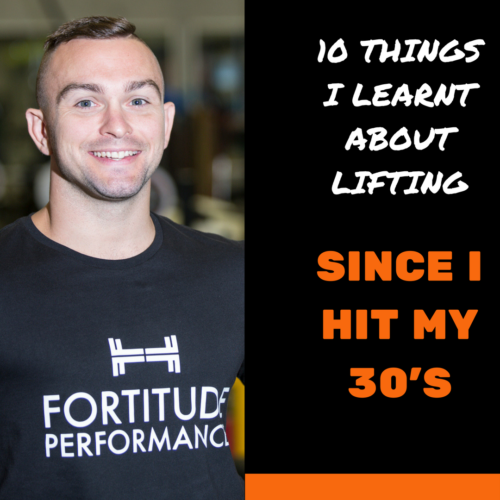Lifting since I hit 30 and this has been the first full year and it has been the strongest and fittest that I have ever felt. Some of the lessons I have learnt along the way seem to have stuck and I almost want to go back to my 20 year old self and tell him something about training smarter, harder and more consistently. It seems in your 20’s some goals are the most important thing and they probably are not heading you in the right direction like trying to rock a six pack when its just an excuse for not eating enough quality food and not training hard enough. As you get older being stronger and staying injury free seem to become more and more important goals along the way which motivate you a lot more.
The following list is a random amount of things that I have learnt about lifting when I hit 30 and make me excited to see the progress that I can make with these lessons for the next 10 years
1.Having a coach to teach you how to lift is invaluable:
I actually think this is the number one thing, as it is the thing that has impacted the results I receive from training and the amount of hard work I put in. By having a coach who is technical with the lifts this has several benefits
* Stay injury free
* Can keep getting stronger
* Help you learn to use you whole body when you lift e.g the squat a proper squat will use you upper back, lats, core and hips all switched on even before you lift. You are able to become strong all over
Looking back I should have taken the time to seek out coaches, even a few different ones and learn the technical aspects of each lift. Because as much as I thought I knew, I did not know shit about lifting as was demonstrated in my puny lifts.
2.Being in the right training environment to get better:
This can be a major one as can really mess up your ability to get better in the short and long-term. All throughout my 20’s I worked in and trained in commercial gyms and I guess I never really understood that there was a better environment out there. The strength and conditioning facility I get to train at now Warrior Performance is the kind of facility that just makes you want to get better technically on your lifts and the people there are strong as hell.
I remember my when I first started there in 2014 there was a group of guys who trained together most evenings and I couldn’t believe how strong they were and all of their lifts were with solid form (no quarter squats or bouncing deadlifts). I learned though over time that the thing that made people want to lift technical and keep getting stronger was the environment and I have seen many a lifter come in and improve just by being in the right environment.
3.You need to eat more quality food than you think to train harder:
Food is king. That pretty sums up how important eating enough food consistently, hitting protein targets, good spread of different fats and fiber in your diet. For the longest I would not eat for performance and get surprised why I would struggle to train more than 2-3 times per week and not be exhausted or not be able to put my best effort forward in each session. Now Sunday is my meal prep day and even better I can actually cook some decent food that doesn’t taste like crap.
4. Consistency is to a point more important than what you do:
For your long-term progress how consistent you can be outweighs alot of the time how hard you go for small periods of time. As we all know life happens and gets in the way sometimes and that is normal. It is your ability though to plan ahead and still come to the gym that is the most important thing in these times as there is a multitude of excuses that you can make. The worse one is being the person who goes gun-ho for 4 weeks, smashes 4-5 sessions a week and then doesn’t train for the next 2 months till they come back again repeating the cycle.
At some points in your life you are going to be the person who can only train 2 times per week and those sessions can only be 60 minutes. That is reality and I am cool with that the main part is just turning up every week and chipping away as this thing is a marathon not a sprint.
5.Asking people who are where you want to be how they got there:
Having people you respect and look up to is important in all aspects of your life and it doesn’t really matter what age you are for this to happen. Asking questions of people who seem to have their shit together in what you want to be good at as well can save you a lot of wasted time and even make you understand how hard you have to work. Speaking to the owner of Warrior Performance Shannon Green is always a good insight in to philosophies of training, nutrition and lifestyle and it is through being able to ask questions you tend to be able to discard what is useless and keep the important stuff. Also seeing how someone conducts their training, nutrition and recovery can be an invaluable tool in itself, looking at the guy who is stacked or strong as you want to be can give away lessons.
6.Keep up with your mobility:
Losing your mobility is something that you have complete control over and is something that must be worked on consistently. The amount of pain I let myself have through my 20’s and potential injuries that could have been avoided just by designating some time each day or every other day to keeping my body mobile in different positions is invaluable to long-term performance.
7.Stay on top of injuries:
Being aware of injuries and staying on top of them is something your body will thank you for as you get older and are still trying to get as much performance out of your body as possible. Even if spending the cash to go to a physio may sting a little or will be a lot worse if injury becomes chronic or even worse stops you from training.
8.Find weak links:
While you want to work on your strengths in the gym at some point in your training year working on your weaknesses as well. For me I try and compete in a few Brazilian Jiu Jitsu competitions per year and conditioning in these matches became and issue for me. Now there was a nerves component, however I wanted to make sure that one part I had complete control over my conditioning was dialed in. So a few blocks of training per year are focused on improving my conditioning through exercises and reps ranges that leave me hating life. Previously I might have buried my head in the sand and not worried about now I understand the importance of being holistic in your training and finding those weak links
9.Always have goals which are out of reach and within reach along the way:
Having goals with your training seemed to help a lot with keeping you motivated and consistent from month to month and year to year. I now understood the power of having goals that you can chip away at and mine are ones which I might never reach and the steps along the way. For me this is my long-term goal of a 3 x body weight squat and dead lift and 2 x body weight bench press which at this point in time are not going to happen in the next year or two. These are 5-7 year goals and luckily there will be many milestones along the way which I can celebrate and learn lessons from along the way.
10.Keep check on the amount of weight you put on, getting fatter is not better:
The lesson that hit me like a tonne of bricks when my father-in-law asked me one day why I had got so fat. I had been 75kg for the longest time and as I got to 30 I broke through to be weighing a good 83kg. The problem was that my food choices and keeping track of the changes that my body was making were not on point so a lot of this became excess fat which is not the kind of weight you want to add on. So lesson learnt was if you are looking to increase muscle make sure that you are not putting on too much fat with it.
All of these lessons have also helped me with how I look to train my clients and understanding where they are coming from at different points in their life.

